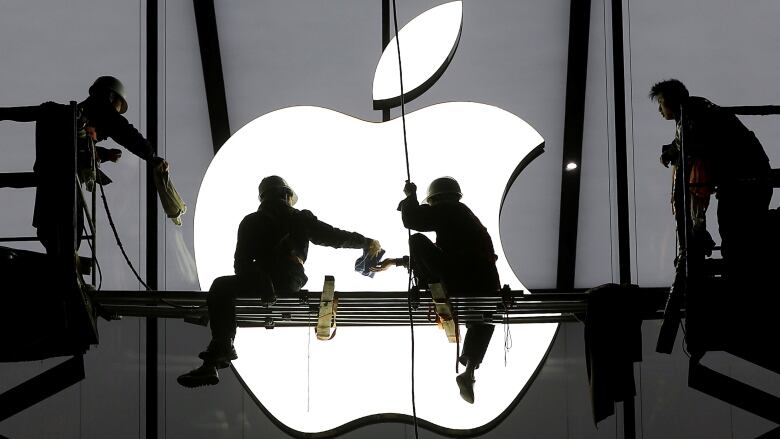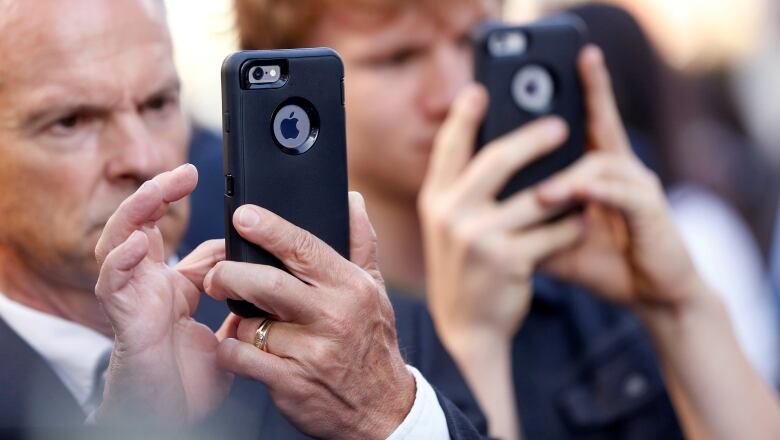Order for Apple to pay billions in back taxes is good for almost everyone: Don Pittis
Whether or not it survives appeal, Europe's $27B ruling will focus attention on tax avoidance

Apple is getting more publicity thanit ever dreamed of just before the expectedlaunch of its new iPhone7. You'd thinkCEO Tim Cook would be happier.
But instead of celebrating, Cook is outraged by a European Commission ruling that the company owes Ireland what could amount to more than$27 billion in back taxes, drawing unwelcome attention to the company's international attempts at tax avoidance during a U.S. election campaign.
"We now find ourselves in the unusualposition of being ordered to retroactively pay additional taxes to agovernment that says we don't owe them any more than we've alreadypaid," Cook wrote in a letter responding to the EC ruling.
Irish windfall

Europe has ordered Apple to pay 13 billion euros, plus interest,to the Irish government for taxes Ireland should have collected and, perhaps more importantly, that Apple should have paid, if not to Ireland then to someone else.
To a country the size of Ireland, the sum is astounding, wiping out its deficit and making a significant dent inits national debt. That is more than$4,000 Cdn for every Irish woman,child and man.
Awkward reminder
After tacking on years of interest on the money Apple owes,the number couldrise to more like19 billion euros. That's more than $27 billionCdn,enough to buy everyone in Canada a new iPhone.
Apple has assured its shareholders that its lawyers will make sure the ruling doesn't stand. But the huge amountof money involvedis an awkward reminder of theabsurdity of a multibillion-dollar defacto U.S.corporationhaving a "head office" in a small country where the tax bills are a tiny fraction of what the company would pay at home.

But the overall impression you mightget from reading the Apple boss's statement is one of disingenuousness.
Not once does Cook mention the key phrase "tax avoidance," a process thatallows companiesostensibly following all the laws of their countries of tax residence to avoid tax they would owe if they repatriated all their various global income.
'Existed on paper'
Part of what Europe objects to is the widespread phenomenon of "taxresidenceofconvenience," where a subsidiary company that legally owns such things as patents and licences is located in a low-tax country. In that way, internal corporate accounting allows profits from parts of the company in high-tax regimes to be transferred to low-tax countries in the form of charges, fees and royalties.
The European ruling points out that the Irish "head office" was a fiction that "existed on paper."
But in Ireland there was a further consideration. Under earlier Irish rules, while companies might tell their "home" country they were based elsewhere, Ireland declared them stateless for the purposes of declaring their global profits.
"These profits allocated to the 'head office,'"said the commission, "were not subject to tax in any country under specific provisions of the Irish tax law."

Even the European Commission's press releaseis complicated. The ruling isbased on the idea that the deal given to Apple was anti-competitive because other companies didn't get equivalent benefits. No doubt there will be lots of legal room to niggle, increasing the chances of a successful appeal.
Billions on the table
But the high-value, high-profile decision reminds everyone, including U.S. voters, that there are billions of dollars of unpaid taxes on the table, and not just at Apple. Supporters of presidential candidatesDonald Trump and Hillary Clinton might ask why American companies areallowed to get away with it and whyit'sEurope and not the U.S. government policing corporate tax avoidance.
Apple is an American business champion, an innovator and a success story. But as the Financial Times pointed out yesterday, "Apple'slightlytaxed foreign cash mountain is the biggest of any U.S. multinational."
Despite the fact that elected governments are supposed to represent their voters, the U.S. Congress has been reluctant to crack down on tax avoidance.
The rich countries' think-tank, the Organization for Economic Co-operation and Development, has led a campaign to bring governments together to restore needed corporate taxation, but as yesterday's ruling shows, the problem is far from resolved.
If Europe's move this week prompts new global action, everyone except perhaps Apple shareholders, Applemanagers and other tax-avoiding companies will benefit.
And with billions of dollars at stake and years of litigation ahead, once again the tax lawyers will make out like bandits.
Follow Don on Twitter@don_pittis
More analysisby Don Pittis
.












_(720p).jpg)


 OFFICIAL HD MUSIC VIDEO.jpg)
.jpg)



























































































